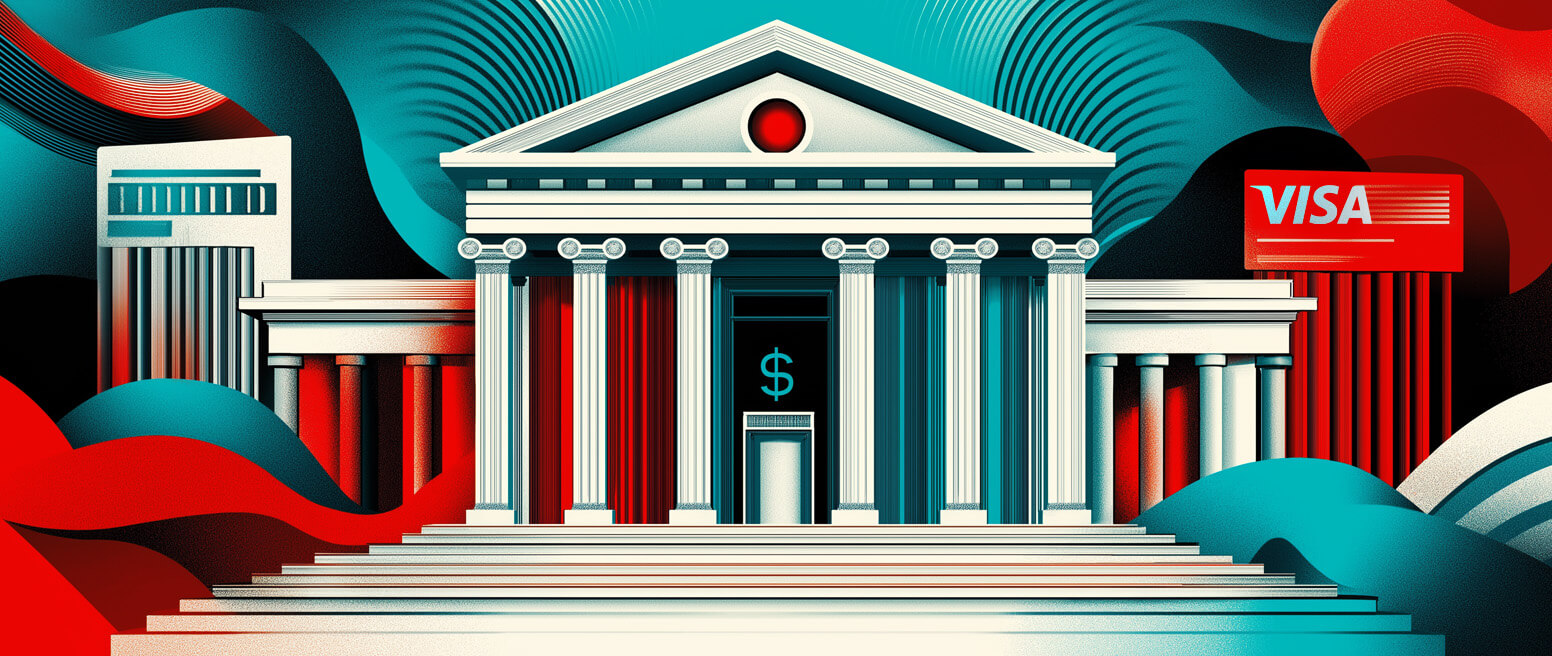Everything You Need to Know About Visa Debit Chargebacks
Payment cards are ubiquitous. But, not all payment cards are the same, or see the same level of widespread usage.
Just under 45% of the respondents in a recent survey reported having a credit card. However, nearly 90% of respondents said they had a debit card. With those kinds of numbers, some protection for both consumers and retailers is crucial.
Every merchant who accepts credit cards is probably aware of chargebacks at this point. This cardholder safety net enables cardholders to dispute credit card charges. The system is well-established for credit cards, but what about debit card charges? Can they be disputed, as well?
The short answer is “yes.” There are distinct differences in how the process works for both cardholders and retailers, though. To help you understand the specifics, let’s take a deeper look at some of Visa’s debit card chargeback rules.
Recommended reading
- What is the Visa Arbitration Process for Chargebacks?
- Visa Chargeback Rules: Your “A-to-Z” Guide for Visa Disputes
- Visa Chargeback Time Limits: The 2025 Guide
- Verifi Order Insight: Using Data to Block Visa Disputes
- Rapid Dispute Resolution: Avoiding Chargebacks With RDR
- Visa Acquirer Monitoring Program: Major Visa Updates in 2025
How Do Visa Debit Card Chargebacks Work?
In simple terms, a Visa debit card chargeback is the reverse of a debit card payment. When an item is purchased via debit card, money is transferred from the cardholder’s bank account to that of the merchant. With a chargeback, the merchant is debited the cost of a disputed amount, which goes back to the buyer.
The debit card chargeback process involves multiple stakeholders and labyrinthine procedures. In a broad sense, though, here’s how it works:
- The cardholder contacts their issuing bank to dispute a charge on their debit statement that they believe is a mistake or fraudulent.
- The issuer examines the claim based on the customer’s complaint. The issuer may recall information from using Order Insight to try and get more information.
- If the claim is legitimate, the issuing bank will initiate the dispute process by notifying the acquiring (merchant’s) bank of the impending claim.
- The issuing bank debits the disputed transaction amount from the merchant’s account and credits it back to the cardholder.
- The merchant is given an opportunity to represent the charge to the issuer, along with compelling evidence showing that the original transaction was legitimate.
If the merchant does not choose to represent the charge (or misses the timeline for doing so), the case is closed, and the funds will remain with the cardholder. If the merchant represents the charge, the bank will evaluate the validity of the provided evidence.
If the issuer is satisfied that the dispute is invalid, they may reverse the chargeback and return the funds to the merchant’s account. The retailer will still be stuck with chargeback fees, however
Finally, for cases in which the dispute remains unresolved, the chargeback may proceed to arbitration. Here, Visa steps in as a neutral third party to evaluate the evidence and make a final ruling.
In official documentation, Visa does not use the term “chargeback.” Instead, Visa uses the term “dispute.” Research shows, however, that most merchants still commonly use the original term. To avoid confusion, this article refers to credit card payments as chargebacks, regardless of the card brand.
Keep in mind that there are timelines, fees, and specialized requirements for each step in the Visa debit chargeback process. Visa debit card dispute time frames include cardholder limits for filing a dispute, as well as smaller windows for merchant responses. Also, Visa rules and codes may differ from other networks, and individual banks may have additional rules.
How Are Visa Debit Chargebacks Different From Credit Chargebacks?
All payment card transactions are about the movement of funds. The main difference between debit, as opposed to credit card transactions, comes down to whose money is actually being moved.
With a credit card purchase, the bank moves funds to the merchant’s account, then adds that amount to the outstanding balance that the cardholder owes the bank. In the case of a debit card purchase, however, the cardholder’s funds are transferred directly from their bank account to that of the merchant.
In other words, from the consumer’s perspective, a debit card chargeback directly impacts how much money is available to spend at that moment. In contrast, a credit card chargeback only involves money that must (theoretically) be paid sometime in the future. This temporarily lowers the cardholder’s credit limit. However, that’s the only significant direct impact for the consumer until the case is resolved.
Visa Credit vs. Visa Debit Chargebacks: Cardholder Fraud Liability
Debit and credit cards also differ in the amount of guaranteed fraud protection they offer to cardholders.
Credit card users have a federally mandated liability cap in cases of identity theft or fraud. The Fair Credit Billing Act ensures that credit card users are liable for no more than $50, regardless of the total amount charged fraudulently, as long as the cardholder reports the incident within 60 days.
Unlike credit cards , debit card fraud protection falls under the Electronic Funds Transfer Act. Federal law still limits liability for unauthorized debit card purchases to $50, provided the fraud is reported within two business days of discovery. If the incident is not reported within 48 hours, the cardholder could be liable for up to $500 in fraudulent charges. If the cardholder fails to report the incident within 60 days, though, they have no legal protections against debit card fraud.
| Payment Card | Level of Fraud Protection | Expected Time Frame |
| Credit Card | Cardholder liability is capped at $50 | Accounts are usually reimbursed immediately, or at least within a few days |
| Debit Card | Cardholder liability is capped at $500* | It might take 10 days for the bank to award a refund |
| Prepaid Card | Liability is left to the discretion of the issuer.** | The time limit is left to the discretion of the issuer, but usually is within 10 days |
*If reported within two days, liability is capped at $50. If reported more than 48 hours but less than 60 days after an incident, liability is capped at $500. After 60 days, the cardholder is legally liable for the entire transaction amount.
**At best, protection will mimic that of a debit card.
All that being said, remember that these fraud protections are the minimum required by the federal government. In most cases, banks and card networks offer much more generous fraud protections for consumers than what is required by law.
Visa’s Zero Liability policy, for instance, covers most Visa credit, debit, and prepaid card users if their card is ever lost, stolen or fraudulently used. Conditions and limitations apply, so cardholders should double-check with their issuers to understand their coverage.
When Can Cardholders Dispute Visa Debit Card Charges?
Consumers may try to dispute a debit card charge for any number of reasons. That said, there are a limited number of scenarios in which a dispute is actually warranted.
Valid reasons to file a Visa debit card dispute include:
| Condition | Description |
| Fraud | Transactions that weren’t authorized by the cardholder |
| Repeated Charges | The cardholder was charged twice for the same transaction |
| Errors | The cardholder was charged an incorrect amount, or for an item not purchased |
| Non-Delivery | Orders that were paid for but which were never delivered |
| Damaged Goods | Merchandise that arrives damaged as a result of the merchant’s actions |
| Misrepresentation | Items that are significantly different from what was advertised |
| Uncredited Returns | The cardholder returned an item, but credit for returned merchandise was not issued |
While any of these situations could result in a chargeback, we must stress that cardholders should always attempt to contact the merchant before calling the bank. The issuer should only be approached as a last resort if the dispute cannot be resolved with the seller. Not only is this the proper protocol, it will also lead to a faster and more mutually-beneficial resolution in most cases.
How Can Consumers File a Visa Debit Chargeback?
For consumers, disputing a fraudulent Visa debit card is fairly straightforward.
There are more specific guidelines to follow, which can vary depending on the bank that issued the card in question. By and large, however, the process of filing a Visa debit dispute should follow these basic steps:
1 | Contact the Merchant
The first move should be to contact the merchant, rather than the bank.
Disputes were designed to be a last resort, used only when the issue cannot be resolved directly with the merchant. It’s considered proper protocol to at least attempt to resolve a problem with the merchant directly before getting the bank involved.
2 | Contact the Bank
If an incorrect or unauthorized debit card charge can’t be remedied by the merchant, cardholders should contact the bank directly. Traditionally this has meant a phone call, but consumers are increasingly looking to online sources or mobile apps for filing disputes.
When disputing a charge, there are certain pieces of information the bank will require. This can include the cardholder’s full name, account number, transaction date, the amount of the charge being disputed, and the reason for the dispute.
3 | Send a Letter
According to the Federal Trade Commission, cardholders should follow up the dispute with a written notice containing the same information as the original claim. This letter should be sent to the issuer within 60 days of the date of the first statement with the disputed charge.
Once notified, the bank typically has 10 business days (20 days for recently opened accounts) to review the claim. If the issuer decides in the cardholder’s favor, they must correct the error within one day and inform the cardholder in less than three business days.
Some disputes can’t be resolved within the 10 business day limit, though. In certain cases, the process could take up to 45 days or longer. In those instances, the bank may issue a temporary credit, which is conditional on the final outcome. If the dispute is ultimately unsuccessful, the temporary credit will be reversed.
How Can Merchants Avoid Visa Debit Chargebacks?
It’s true that most disputes start with the customer. However, there are a number of steps merchants can take to safeguard their businesses against Visa debit chargebacks.
Visa offers a number of tips, tools, and suggested practices that should help prevent a Visa debit chargeback. Some key practices we recommend include:
These are just a few of the key practices we’d suggest to ward off Visa debit chargebacks. Check out our main article on chargeback prevention for more information:
Learn more about chargeback preventionDon’t Let Chargebacks Undermine Your Business
Chargebacks are a serious threat to merchant revenue, regardless of whether they come from a debit or credit transaction. Fortunately, that threat can be mitigated with a comprehensive management strategy.
Chargebacks911® has a wealth of experience-based knowledge and expertise in providing cost-effective prevention and risk mitigation strategies. If you’re worried about navigating the intricacies of Visa’s chargeback policies or have other questions about chargebacks or friendly fraud, contact Chargebacks911® today. Our experts can answer your questions and even provide a no-obligation chargeback audit.
FAQs
Can you chargeback a Visa debit card purchase?
Yes. If a purchase was made with a Visa debit, credit or prepaid card, filing a chargeback (also known as a card dispute) is an option.
How long does a customer have to file a Visa chargeback?
Visa cardholders have no more than 120 days from the original transaction or expected delivery date to file a dispute in most situations. However, there may be extenuating circumstances which can extend this deadline.
How long does a debit card chargeback take?
While many cases can be resolved quickly, more complex dispute claims can take up to 90 days or more. This depends on whether the merchant submits a response (called “representment”), and if the dispute is escalated to Visa arbitration.
Does Visa allow chargebacks?
Yes, Visa allows chargebacks for credit and debit card purchases. However, not all chargebacks are considered valid, based on the reasoning.
What qualifies for a chargeback?
Common reasons for chargebacks include fraud, billing errors, damaged or non-delivered merchandise, or unissued credits.
Can consumers successfully dispute a debit card charge they willingly paid for?
Potentially, if the buyer receives products or services are not of the expected quality, or the order never arrives at all. Understand, however, not all claims will end in a total payment reversal.















